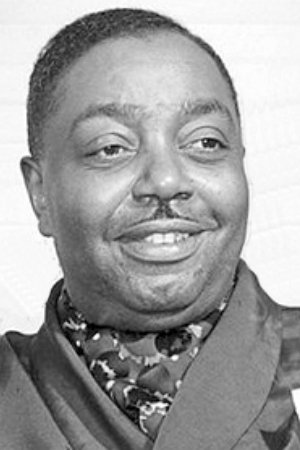Big Joe Turner (1911-1985)
Alias:
Joseph Vernon Turner
Birthplace:
Kansas City, Missouri, USA
Born:
May 18, 1911
Died:
November 24, 1985
Joseph Vernon "Big Joe" Turner Jr. (May 18, 1911 – November 24, 1985) was an American singer from Kansas City, Missouri. According to songwriter Doc Pomus, "Rock and roll would have never happened without him." His greatest fame was due to his rock-and-roll recordings in the 1950s, particularly "Shake, Rattle and Roll", but his career as a performer endured from the 1920s into the 1980s. Turner was inducted into the Rock and Roll Hall of Fame in 1987, with the Hall lauding him as "the brawny voiced 'Boss of the Blues'". Turner was born May 18, 1911, in Kansas City, Missouri, United States. His father was killed in a train accident when Turner was four years old. He sang in his church, and on street corners for money. He left school at age fourteen to work in Kansas City's nightclubs, first as a cook and later as a singing bartender. He became known as "The Singing Barman", and worked in such venues as the Kingfish Club and the Sunset, where he and his partner, the boogie-woogie pianist Pete Johnson, became resident performers. The Sunset was managed by Piney Brown. It featured "separate but equal" facilities for white patrons. Turner wrote "Piney Brown Blues" in his honor and sang it throughout his career. At that time Kansas City nightclubs were subject to frequent raids by the police; Turner said, "The Boss man would have his bondsmen down at the police station before we got there. We'd walk in, sign our names and walk right out. Then we would cabaret until morning." His partnership with Johnson proved fruitful. Together they went to New York City in 1936, where they appeared on a playbill with Benny Goodman, but as Turner recounted, "After our show with Goodman, we auditioned at several places, but New York wasn't ready for us yet, so we headed back to K.C." Eventually they were seen by the talent scout John Hammond in 1938, who invited them back to New York to appear in one of his From Spirituals to Swing concerts at Carnegie Hall, which were instrumental in introducing jazz and blues to a wider American audience. In part because of their appearance at Carnegie Hall, Turner and Johnson had a major success with the song "Roll 'Em Pete". The track was basically a collection of traditional blues lyrics. It was a song that Turner recorded many times, with various musicians, over the ensuing years. In 1939, along with the boogie-woogie pianists Albert Ammons and Meade Lux Lewis, Turner and Johnson began a residency at Café Society, a nightclub in New York City, where they appeared on the same playbill as Billie Holiday and Frankie Newton's band. Besides "Roll 'Em, Pete", Turner's best-known recordings from this period are probably "Cherry Red", "I Want a Little Girl" and "Wee Baby Blues". "Cherry Red" was recorded in 1939 for the Vocalion label, with Hot Lips Page on trumpet and a full band in attendance. During the next year Turner contracted with Decca and recorded "Piney Brown Blues" with Johnson on piano. ... Source: Article "Big Joe Turner" from Wikipedia in English, licensed under CC-BY-SA 3.0.





